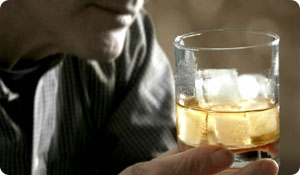
In our society, alcohol has taken center stage in so many of our social activities. Occasional alcohol consumption is relatively harmless. However, if you've been imbibing frequently, you may be putting yourself at higher risk for developing cancer.
How Does Alcohol Affect Your Risk for Cancer?
Researchers suspect alcohol increases cancer risk in several ways—the actual risks vary by type of cancer. Alcohol enhances the ability of carcinogenic substances to invade cells where they damage DNA and promote cancer development. Excessive consumption depletes your body's supply of folate, an important B vitamin essential for DNA replication and repair. Furthermore, smoking intensifies the negative effects of alcohol.
Women are at particular risk for developing breast cancer. Studies have identified a link between alcohol and the most common type of breast cancer—hormone-positive tumors. Drinking one to two alcoholic drinks per day increases a woman's risk for hormone-positive cancers by 32 percent; with three or more drinks, the risk increases to 51 percent.
Heavy drinkers are six times more likely to develop oral cancers. Seventy-five to 80 percent of oral cancers, which include the mouth, pharynx, larynx and esophagus, are caused by direct exposure to alcohol. Drinking five or more alcoholic beverages per day also alters the liver's ability to metabolize carcinogens and can cause liver cancer. There is also inconclusive evidence that alcohol is also implicated in colorectal cancer.
How Much is Too Much?
In studies of the health effects of alcohol, one serving is defined as five ounces of wine, 12 ounces of beer and 1.5 ounces of 80-proof alcohol. However, most single servings in restaurants run much larger, so one drink may really be the equivalent of two.
Experts suggest women limit their daily intake to one drink and men should not exceed two. Try not to drink every day. To minimize the amount of alcohol you drink in social settings, order small serving sizes, alternate between alcoholic and non-alcoholic drinks, drink low-alcoholic beverages or dilute your drink.
But What About Red Wine?
You've probably heard that red wine is actually good for you. It's true that a modest amount of red wine may protect your heart, but this is mostly for people who are at risk for heart disease.
Red wine contains polyphenols, which have antioxidants with cancer protection properties. In studies with lab animals, resveratrol (also an antioxidant) inhibits cancer, reduces inflammation, and reduces the release of a protein that promotes cancer growth. It does appear that red wine may provide some protection from cancer. In another study, one glass per day reduced men's risk of prostate cancer by 50 percent. However, it's the non-alcoholic component of red wine seem to be associated with these benefits.
Sources:
http://www.aicr.org/site/News2?abbr=pr_&page=NewsArticle&id=14613&news_iv_ctrl=2461
http://www.cancer.gov/cancertopics/factsheet/red-wine-and-cancer-prevention





